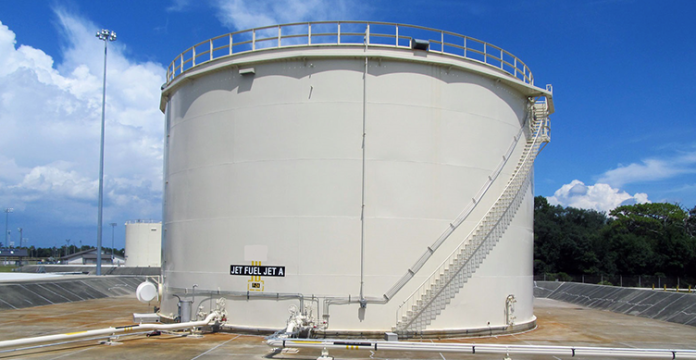Nigeria’s aviation sector is set for a significant upgrade with the launch of a 15 million-litre Joint User Hydrant Installation 2 (JUHI-2) aviation fuel depot on October 17, 2024. Located near Murtala Muhammed International Airport (MMIA) in Lagos, this facility will serve as the largest jet fuel depot in the country and aims to address long-standing fuel supply issues plaguing the aviation industry. This critical infrastructure will benefit major airports such as MMA1, MMA2, and nearby airbases, ensuring a steady, reliable fuel supply and mitigating operational delays caused by fuel shortages.
The JUHI-2, spanning 46,000 square meters, features cutting-edge technology including advanced filtration systems, simultaneous loading capabilities, dedicated fuel trucks, and state-of-the-art safety measures. The depot is a collaborative project owned by seven major companies: Eterna Plc, Masters Energy, Techno Oil, Quest Oil, Rahamaniyya, Ibafon Oil, and First Deep Water Limited.
During the official launch, Nigeria’s Minister of Aviation and Aerospace Development, Festus Keyamo, and Minister of State for Petroleum Resources, Senator Heineken Lokpobiri, will officiate the event. According to Abiola Lawal, MD/CEO of Eterna Plc and Chairman of the JUHI-2 Commissioning Committee, this development is a game-changer for both domestic and international aviation operations, as it will reduce fuel shortages and stabilize the aviation fuel supply chain.
The new facility also offers indirect benefits to broader sectors, potentially boosting Nigeria’s aviation market competitiveness within Africa. With a steady fuel supply, airlines can improve operational efficiency, reduce flight delays, and stabilize flight ticket prices. JUHI-2 is expected to play a vital role in supporting the logistics, transport, and energy sectors, while reinforcing confidence in Nigeria’s aviation infrastructure for both local and international stakeholders.
This milestone marks a significant step towards strengthening the country’s aviation industry, further positioning Nigeria as a growing force in the African aviation market.













